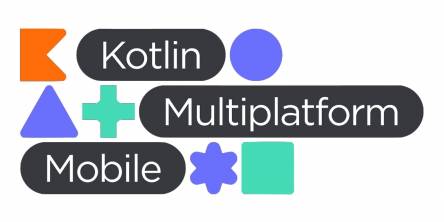Tips To Modernize Data Management in Modern Age

Data, in general, has become a rockstar in the business world. As companies continue their pursuit of efficiency, flexibility, better decision-making, and improved customer experiences, establishing robust data management has rendered them the need of the hour. Plus, given the continued evolution of technologies and the many solutions they provide, there is now a growing emphasis on modernizing data management. After all, how else should one keep up with the rapidly evolving security and app requirements and demands? And let us not forget that managing data safely and in a way compliant with a world of regulatory requirements needs painstaking stratification to source, cleanse, integrate, store, and prepare data for further use. I was wondering how you can do that too. We have got your back!
In the digital age, data is the lifeblood of businesses and organizations, fueling innovation, decision-making, and growth. However, the data management landscape constantly evolves, presenting exciting opportunities and complex challenges. Traditional data management approaches often struggle to keep pace with the demands of today's dynamic and data-rich environment. Organizations must embark on a modernization journey to thrive in this data-abundance era. In this blog, we will embark on a comprehensive exploration of the myriad ways to modernize data management. From harnessing the potential of cutting-edge technologies like AI and cloud computing to adopting agile data governance strategies, we will uncover the procedures and best practices that can empower you to unlock the full potential of your data assets while ensuring their security, accessibility, and compliance.
4 Handy Tips for Data Modernization
- Revamp data management architecture: Let us begin with the first step. Companies must start their data management modernization projects by analyzing the existing data management architecture. Identify the areas that need improvement or demonstrate the potential for improvement. Modern data management architectures usually involve distributed and scalable systems and are vital to enabling better resource utilization. They are also conducive to seamless data integration and data sharing.
- Build AI-driven data management solutions: For companies to remain competitive in the current market, it has become imperative for companies to glean the best possible insights from their data. This is where artificial intelligence (AI) and machine learning (ML) come in, which help automate and optimize data management tasks. AI, for example, can help with data integration, data cleansing, data quality assessment, and even data governance. The insights thus achieved can drive better decision-making and innovation and facilitate the discovery of new opportunities.
- Map data assets: The next step in this journey is understanding and documenting all data assets across the organization. This involves identifying sources, types, formats, and data ownership. Such a comprehensive data asset map empowers companies to have a clear view of their data landscape and, thus, ensures that they can make informed decisions about data utilization and governance.
- Data democratization: Companies must empower stakeholders with easy access to data and analytical tools, i.e., democratize their data. This involves eliminating data silos and providing self-service capabilities. Companies must also empower non-technical users to explore and analyze data without needing assistance from IT or data science teams.
Data modernization best practices, including the ones listed above, help organizations successfully modernize their data management practices and, consequently, tap into the full potential of their data assets to drive innovation and growth. But one must not forget that data modernization isn't just about implementing technologies; it is as much about fostering a data-driven culture within the organization. So, do not forget to encourage employees to base their decisions on data and insights. It would also be a wise idea to identify and reward data-driven behaviors. Such a cultural shift in the organization will help foster better collaboration and utilization of data across all levels of the organization.
Similar Articles
In today's technologically advanced landscape, understanding heat distribution is critical for enhancing efficiency and safety across various sectors. Infrared thermography, a pivotal imaging technique, has revolutionized how professionals view and analyze thermal performance.
In this digital age, there are many options available for marketing, but the one that stands out as one that can transform the marketing realm is programmatic connected TV (CTV). The programmatic CTV approach for advertising shows the changing trend in how brands would like to connect with their audience.
PHP has a dominant market position, with over 79% of websites powered to some degree. Developers majorly utilize organized and leveled PHP basic functions, known as PHP frameworks, to create flexible output.
The nonstop hum of machines around us, from the humongous industrial complexes to the processors within the gadgets, shapes our everyday lives. These mechanical advancements have become essential, driving everything from fundamental necessities to our vehicles, airplanes, and so forth.
New methods of managing a Pilate business are transforming the way studios operate. It simplifies routine tasks and helps fitness businesses to grow and facilitate their customers in various ways.
Discover if the S23 Ultra case is compatible with the S24 Ultra. Get insights on fit, protection, and functionality in this comparison.
In the era of astoundingly quick technological progress, organizations are increasingly feeling the need to adjust to the evolving market demands and their requirements by embracing digital transformation
With the rise of mobile devices and the ever-growing demand for cross-platform solutions, businesses are constantly seeking efficient ways to develop applications that can be used on multiple platforms. This is where Kotlin Multi Platform comes into play. Kotlin Multi-platform is a versatile technology that allows developers to write code once and deploy it on various platforms such as Android, iOS, and web.
Discover reliable network cabling solutions ensuring seamless connectivity for remote work. Enhance productivity with consistent connections anywhere.









